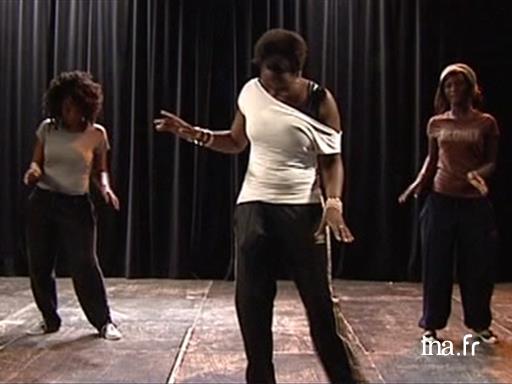Another suburb, another time

Information
Story about the Dervallieres district in Nantes. In Nantes, more than 25 nationalities rub shoulders every day. Like so many others, Guapo, Mariama and Mama are the offspring of immigrants. Perfectly integrated in the district, they retain the values and traditions of their African community. Guapo, Mariama and Mama have known each other since infant school. Their friendship is above all a story about land and maternal roots. They have got to know the district, they have their own routines. Together they created "Black Diamond", an African dance group. Tossed about between two completely different worlds, these three grinning girls have found their place in society and their own identity. Proud to be French, and also proud of their little piece of Africa.
Context
Another suburb, another era.
The Dervallieres district was built in the 1950s to alleviate the housing shortage in a fast-growing conurbation. As early as 1959, this new suburb was home to a working population who could enjoy the comfort and the new standards of "modern life" offered by a growing national economy. But the economic crisis struck and for the city's inhabitants this meant unemployment, impoverishment, and even social marginalization and exclusion. Urban planning projects were implemented in the 1990s to enhance this district, considered by institutions to be a «sensitive» area. But they did not manage to prevent Dervallieres from falling victim to the 2005 suburban riots, which were an alarm call from these underserved populations. The issue of this urban violence, and the solutions that were discussed in public debates, went beyond mere economic considerations, and ended up focusing on cultural and identity issues that called into question the French cultural and social model.
Who were these forgotten suburban youths, the offspring of economic migration in the second half of the 20th century?
These three young French girls, originating from various countries in sub-Saharan Africa, formulated an initial answer to this question. Living a modest existence in an urban environment deemed «difficult» - although they were born in France and educated by its institutions - they inherited and even simultaneously cultivated another cultural heritage, that of Mali, Guinea, or Senegal... This in-between world lifestyle, seen as a failure by proponents of the traditional French integrationist model, is simply the expression of a evolving society, its people and the social and cultural definitions that shape it. These French girls, at the same time African and European, cultivate their origins, their daily lives shared with other individuals, and their dreams of distant horizons, to enjoy a new, plurinational, identity in France, in phase with their globalized lives. And when it is time to express this identity with their bodies, the dance they perform is the Coupé Décalé: an Ivory-Coast style dance, created in Paris, reclaimed by Ivory Coast,and which spread throughout French-speaking Africa, to then be carried by the country's migrants. This incarnation of a new African-French identity is that of a new generation that dances and sings. It takes inspiration from France and promotes a transnational Afropop with the help of a myriad of groups (La Saomera, Afrik angels, and Angelo Capitaine...)





